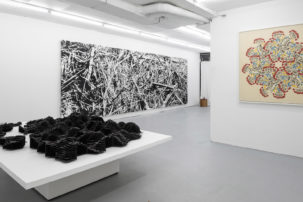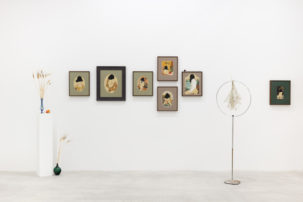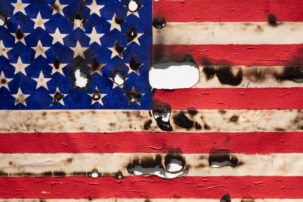The line between truth and fiction, dream life and real life, is at the core of Joshua Schwebel’s exhibition, “A Dream In Which I Am You,” at Montreal’s Darling Foundry. At its conceptual centre is a novel co-written by Schwebel and his younger sister, Shoshana Schwebel (voicing her brother in the novel), in which real-life events are fictionalized. The exhibition’s joyful materiality, which is unprecedented in the artist’s work, adds a serious sense of misplaced déja vu. The larger installation—featuring flower and butterfly pressings, a slide projector, personal correspondence, printed-gauze curtains and a papier-mâché bedroom set that could belong on a theatre stage as much as in a gallery—draws on works made by and about time spent in residence at the summer home of renowned 20th-century Polish artist and playwright Tadeusz Kantor.
Some of the ideas in the show flow from Schwebel’s 2016 exhibition in Kantor’s home, which included site-specific installations and actions for a small audience. In addition to the objects listed above, “A Dream In Which I Am You” includes correspondence between Schwebel and Benny Nemerofsky Ramsay, which reveals that both artists were meant to undertake the residency together. In place of this planned collaboration, the book turns Schwebel and Nemerofsky Ramsay into characters that simultaneously antagonize and create one another, while the installation allows Schwebel to carve his own space out of the physical and emotional absence of both Nemerofsky Ramsay and Kantor in the house.
While Schwebel’s best-known works can be firmly described as institutional critique, there is a strong narrative precedent in his practice that imagines the voice of another. Previously, Schwebel has impersonated artist Micah Lexier as part of an exhibition (Schwebel also had his father perform the role of an important art critic from New York). He has paid artists to visit galleries to artificially inflate their visitor statistics, effectively feigning the role of an interested public. As much as another recent work, Reserve (2018), is about pushing our relationship with institutions and individuals while testing the relationship to memory and truth, so too is this project. Like a dream that you just can’t shake off, Schwebel’s work is both beautiful and unheimlich (a German word that roughly translates to “uncanny”)—and it will stay with you long after you wake up.
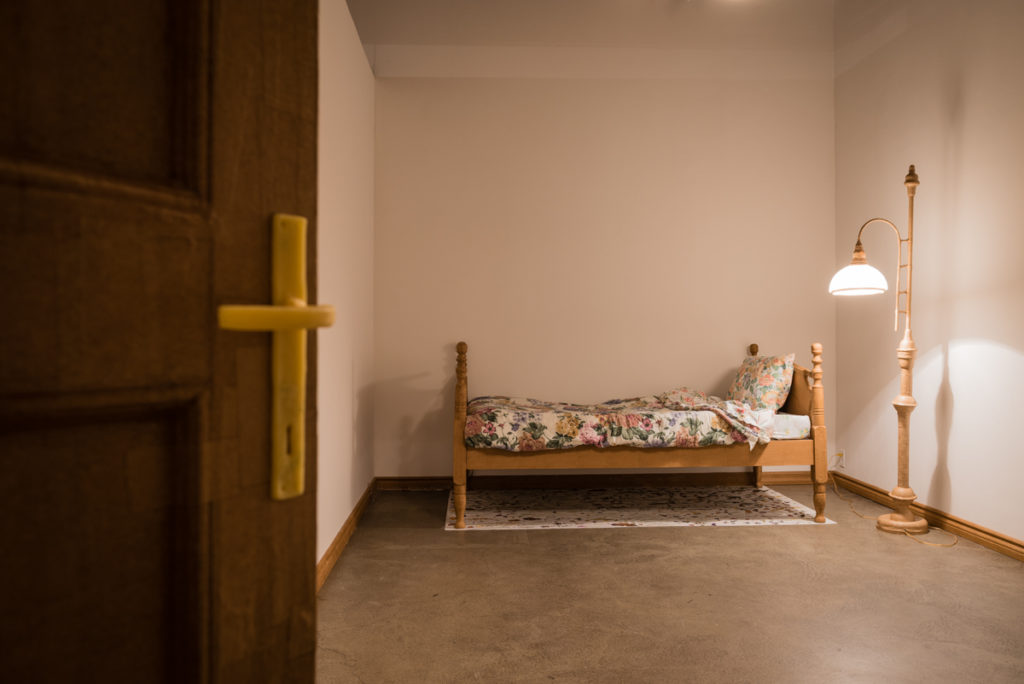
Installation view (detail) of Joshua Schwebel's "A Dream In Which I Am You" at the Darling Foundry, 2018. Photo: Maxime Boisvert.

Installation view (detail) of Joshua Schwebel's "A Dream In Which I Am You" at the Darling Foundry, 2018. Photo: Maxime Boisvert.

Installation view (detail) of Joshua Schwebel's "A Dream In Which I Am You" at the Darling Foundry, 2018. Photo: Maxime Boisvert.

Installation view (detail) of Joshua Schwebel's "A Dream In Which I Am You" at the Darling Foundry, 2018. Photo: Maxime Boisvert.

Installation view (detail) of Joshua Schwebel's "A Dream In Which I Am You" at the Darling Foundry, 2018. Photo: Maxime Boisvert.

Installation view (detail) of Joshua Schwebel's "A Dream In Which I Am You" at the Darling Foundry, 2018. Photo: Maxime Boisvert.

Benny Nemerofsky Ramsay's A Letter Condoning This Exhibition / A Letter Condemning This Exhibition (2018) as part of Joshua Schwebel's exhibition "A Dream In Which I Am You." Photo: Maxime Boisvert.

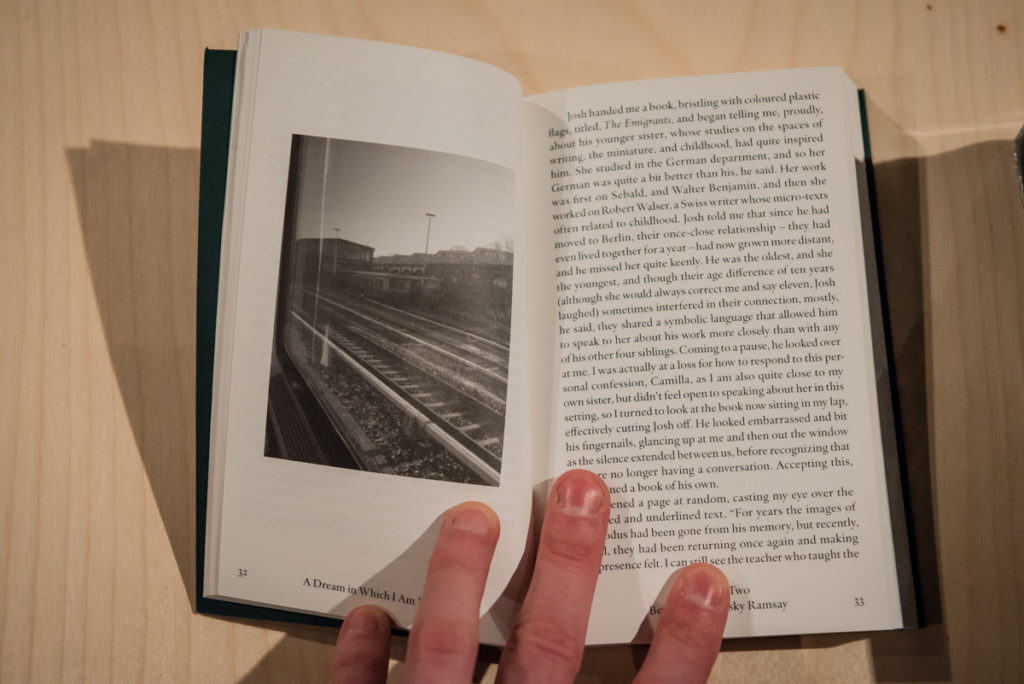 Artist's novel co-written by Joshua Schwebel and Shoshana Schwebel as part of the exhibition "A Dream In Which I Am You," 2018. Photo: Maxime Boisvert.
Artist's novel co-written by Joshua Schwebel and Shoshana Schwebel as part of the exhibition "A Dream In Which I Am You," 2018. Photo: Maxime Boisvert.

